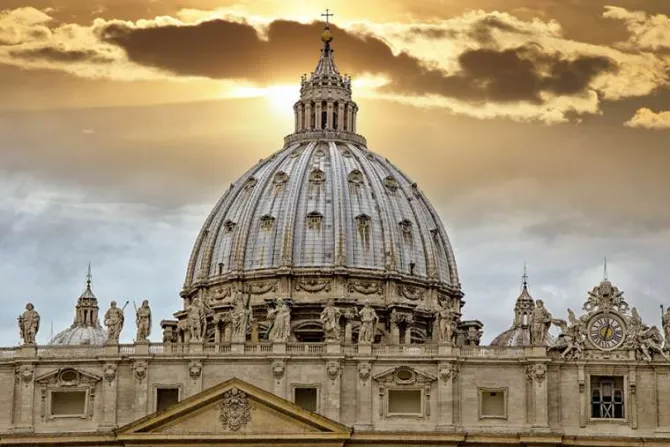St. Peter’s Dome. | dade72 via Shutterstock.
In his 2013 apostolic exhortation Evangelii gaudium, Pope Francis expressed his desire to see a “healthy decentralisation” in the Catholic Church. He used the term again in his latest amendments to the canon law of both the Latin and Eastern Churches, issued on Tuesday.
The changes were contained in the motu proprio Assegnare alcune competenze (“Assigning some competencies”). A motu proprio is a document issued by the pope “on his own impulse” and not at the request of an office of the Roman Curia. It is through this means that the pope is seeking to achieve decentralization. (There are currently 49 documents listed in the section of the Vatican website dedicated to Pope Francis’ motu proprios.)
In practice, the pope has imposed decentralisation by centralising decisions upon himself, without involving the Roman Curia — not even making use of the advice of local bishops, who are the chief recipients of the measures.
Formally, consultation takes place through the Council of Cardinals, established by Pope Francis at the beginning of the pontificate precisely to help him in the governance of the Church and to outline a general reform of the Curia.
Yet the pope has made almost all decisions outside the Council of Cardinals and not as part of the work of the council itself. The apostolic constitution reforming the Curia has still not been published after years of discussion. But Pope Francis indicated that it had been finalised in an interview last September.
The pope’s recent changes to canon law are more decisive than the Curia reform. Following recent custom, the title of the latest motu proprio is in Italian, not Latin, and it aims to transfer some powers of the Apostolic See to bishops.
This transfer is signalled by replacing the word “approval” with “confirmation” in specific sections of the Code of Canon Law. Bishops now can approve the publication of catechisms, the creation of a seminary in their territory, and guidelines for priestly formation, which can be adapted to the pastoral needs of each region. These decisions now only need confirmation from the Apostolic See.
Furthermore, the pope allows priests to be incardinated in a particular Church or religious institute and a “public clerical association” recognised by the Holy See. The exclaustration of religious men and women — the possibility of allowing a religious to live outside their institute for serious reasons — has been extended from three to five years.
Source: CNA

